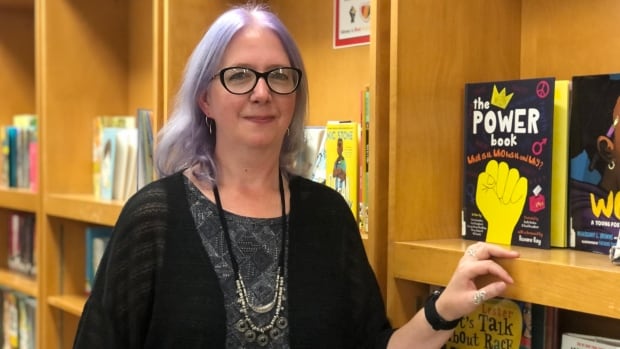“Controversy Surrounding Equity-Based Book-Weeding Process Sparks Debate Among Teacher Librarians”
Teacher librarians across Ontario are sharing their perspectives on a divisive new book-weeding process that has raised concerns about equity and inclusivity in school libraries. This process, which was recently halted by the Education Minister, came to the forefront after a CBC Toronto investigation revealed that some schools in the Peel District School Board (PDSB) were removing books based solely on their publication date, specifically targeting those published in or before 2008. The aim of this initial stage was to eliminate damaged, outdated, and underutilized books. However, the differing interpretations of this process among teacher librarians largely resulted in an inconsistent approach to weeding, highlighting the need for clearer communication and support. It is crucial to examine various viewpoints to understand the potential complexities of this issue.
Mixed Interpretations of the Process Reflect Communication Challenges
Four teacher librarians were interviewed by CBC Toronto, and while they all agreed on the importance of removing books that could be harmful to students, their experiences with the new process varied. Two of the educators felt that the instructions were unclear, rushed, and forced them to remove a significant number of books without adequate funding for replacements. On the other hand, Evelyn Reford found the process to be straightforward and was satisfied with the funding she received to purchase new books for her school library. Reford mentioned that she would not remove popular books like Diary of a Wimpy Kid, even though they were published before 2008, as they were still enjoyed by her students. Another teacher librarian expressed similar sentiments, appreciating the clarity of the instructions but suggesting that mandatory in-person training sessions for principals would have ensured a more consistent understanding of the process. Given the fear of reprisal, two teacher librarians chose not to be named.
Previous Book-Weeding Processes and Equity-Based Goals
Weeding books from libraries is not a new practice. Public libraries across the country frequently review and dispose of damaged, outdated, or low-circulation books to maintain the relevance and quality of their collections. The PDSB aimed to take this standard process further by introducing an equity-based book-weeding process, known as the “equitable curation cycle.” This cycle was established as a response to Directive 18 from the Minister of Education, which mandated a diversity audit of schools, including libraries. Reford, who removed over 2,000 books during the first step of this process, received replenishment funds in addition to her school’s budget allocation.
Conflicting Criteria and the Importance of Quality
The two teacher librarians who used the 2008 publication date criterion alongside circulation data found it challenging to remove certain titles, especially non-fiction books about animals. This discrepancy in interpretation highlights the need for a more comprehensive understanding of the criteria. Bernadette Smith, a superintendent with the PDSB’s innovation and research department, clarified that teacher librarians were not instructed to remove books solely based on their publication date. The publication date was one factor to consider alongside board priorities, affirmation of student identities, and the “MUSTIE” acronym for weeding criteria—Misleading, Unpleasant, Superseded, Trivial, Irrelevant, and Elsewhere. Smith emphasized that teacher librarians should exercise professional judgment and engage in conversations with colleagues and administration when making decisions about book removal. The focus should be on quality rather than quantity, aiming for relevant and current resources.
Discontinued Anti-Racist and Inclusion Audit Shifts Focus to Library Replenishment
The PDSB was instructed by Education Minister Stephen Lecce to halt the next step of its new weeding process, the anti-racist and inclusion audit. This audit aimed to ensure that books in school libraries do not perpetuate racism, stereotypes, or deficit-thinking. Instead, the board will concentrate on purchasing new books to replenish library collections. Paul Da Silva, the associate director for school improvement and equity, emphasized the importance of maintaining comprehensive libraries and ensuring the diversity of the books available. Although the anti-racist and inclusive audit has been canceled, Smith emphasized that teacher librarians should continue to weed books annually, employing an equity lens to ensure that students are not exposed to harmful or offensive content.
The Future of School Libraries and Community Representation
The Peel District School Board has committed to replenishing all school libraries, with each school having their requests for funding granted. Reford, for example, received $3,632 in funds to purchase new books in addition to her school’s existing budget. The Education Minister’s office stated that it expects the board to include materials that reflect the diversity of their community while maintaining classic Canadian literature and historical novels. However, the challenge lies in ensuring that library shelves are filled with quality books that represent, engage, and inspire students. There is a need for ongoing dialogue and collaboration among educators, administrators, and policymakers to achieve this goal.
In conclusion, the controversy surrounding the equity-based book-weeding process sheds light on the complexities of promoting inclusivity and diversity in school libraries. The varying interpretations and experiences of teacher librarians underscore the importance of clear communication, adequate resources, and professional development opportunities. While it is crucial to remove books that do not serve the student population, it is equally vital to ensure that the weeding process is comprehensive, fair, and grounded in expert judgment. Moving forward, a balance must be struck between preserving classic literature and historical novels and incorporating contemporary, diverse, and representative works into school libraries. By prioritizing quality over quantity, we can strive for an inclusive and enriching reading experience for all students.
Reference















